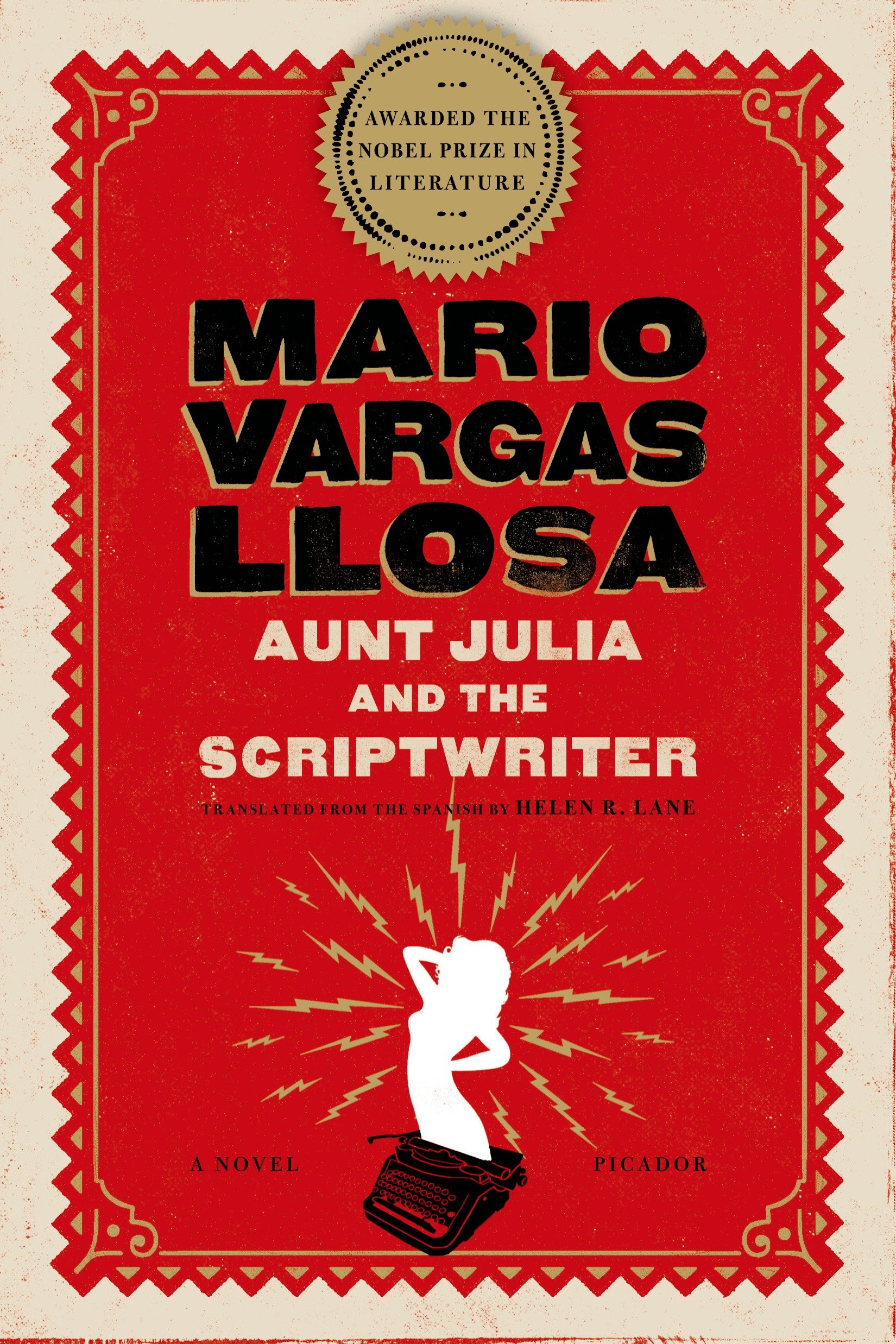Vargas Llosa, along with Manuel Puig, is one of those South American authors I've long intended to get around to reading (like for more than two decades long). It finally happened, and I'm glad to have finally gotten around to this book, as it was an immense pleasure. As with Puig, Vargas Llosa seems to be writing from a different tradition than many of the fantastic realists, but there is a touch of fantasy in this work, if only in the alternate chapters.
What are alternate chapters? Vargas Llosa's book is divided essentially into two parts. Odd chapters focus on the main story; even chapters focus on short stories. The main story involves an eighteen-year-old man in law school who has a job as a radio newsman in Lima, Peru. This young man falls in love with his Bolivian aunt Julia, who is in her early thirties and newly divorced. (The two are unrelated by blood, the aunt being the sister to the wife of the young man's uncle by blood.) As might be imagined, this creates a scandal. The book recounts how the two fall for one another and how they attempt to keep the relationship secret.
But it also recounts the life of another radio employee, who works for a different radio station with the same owners. This other radio station focuses not on news but on entertainment, notably soap operas. The Pedro Camacho, the scriptwriter, is the brain behind these operas. Earlier, the station had depended on imported Cuban scripts, but the Bolivian Camacho is an artist and a perfectionist whose devotion to his craft creates an equal devotion among radio listeners. Audiences grow huge.
It is summaries of the scripts for the stories that Camacho's writes that forge the alternative chapters. These stories are on their own very interesting, and I wish I could find one on the Net to share, but alas, it eluded me. The best stories come toward the front of the book. The very first focuses on a man in love with a woman, but the woman has opted to marry another man, one not really befitting her station--because, as it turns out, she has gotten pregnant by her brother, with whom she is in love. These seems appropriate for soap operas, but it's told with a high literary voice that appeals to someone like me. And true to form, the story ends, not with a conclusion, but with a series of questions about what will happen next. Later chapters focus on a seeming alien arrested by a police officer who has qualms about actually shooting the innocent creature, despite orders; and the rape and attempted murder of the owners of a hotel by one of its boarders. As the stories continue, they became less interesting to me, especially as I got more involved in the main story. But they also devolve naturally, as Vargas Llosa explains in the main text. Character names begin to be repeated between stories (even though they are not the same character) or changed midstory. And then, eventually, all the characters are killed off. Pedro Camacho works himself so hard that he has a meltdown.
Meanwhile, the narrator and his aunt are found out and ordered to stop. Instead, the narrator seeks out a means to get married, which is difficult, given that he is technically a minor under Peruvian law. The tale becomes a love story, as the two try to stay together against overwhelming odds.
And for what? The family is concerned because Aunt Julia is a divorcee and so much older. The narrator is so young and not finished with school. He's condemning himself to a life of hardship. I can understand the family's concern.
But the fortunes of people are not always what they seem likely to become. Camacho goes insane and loses all. The narrator, living for love, seems to come out all right in the end. So too does another radio employee who is largely considered an oaf, while another such employee struggles on along a similar path that he's always been on. Life is a soap opera.
Subscribe to:
Post Comments (Atom)







No comments:
Post a Comment